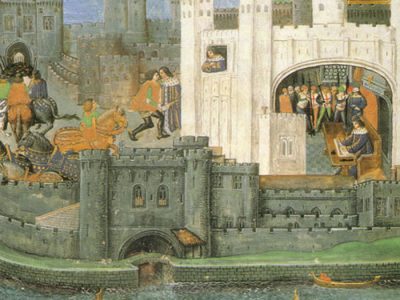Renegade Scots?
One does not bite the hand that feeds; and in his Budget speech on 18 March, the Chancellor of the Exchequer did announce that £1 million would be spent by the Government on marking the 600th anniversary of Agincourt. However, it is remarkable that in the same speech George Osborne also said that Shakespeare had portrayed Agincourt as a time ‘when a strong leader defeated an ill-judged alliance between the champion of a united Europe and a renegade force of Scottish nationalists.’ This anachronistic jibe at the EU, the Labour... Read More


